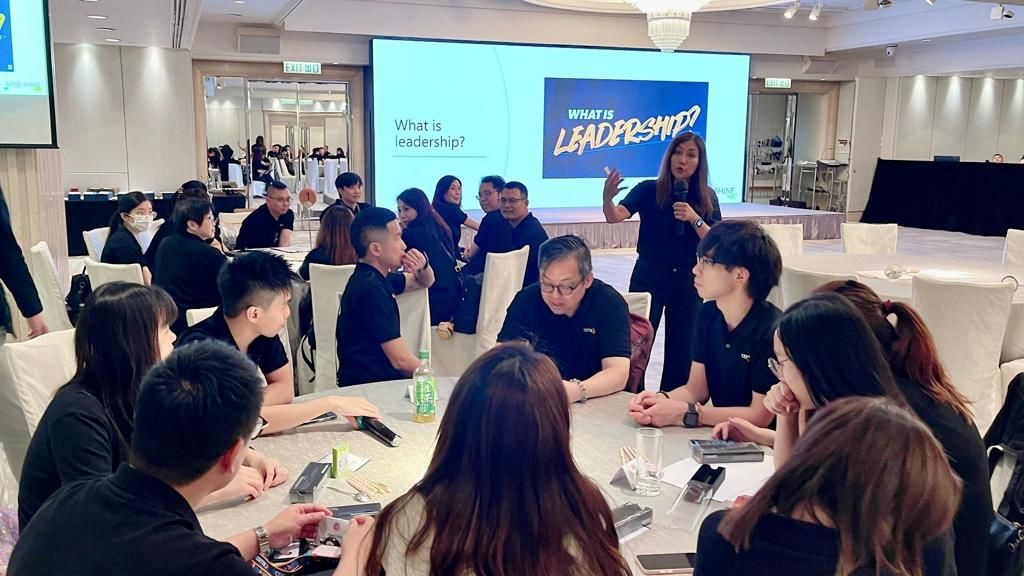Redesigning EX with the three key pillars of People, Data and Culture

As a leader with more than 25 years of experience in the full spectrum of HR, Dr Jaclyn Lee, CHRO, Certis, has seen at close quarters how the world of work has evolved. Yet, to her, the acceleration of technology has undoubtedly had the greatest impact on the way organisations work.
Speaking with HRM Magazine Asia, she reminisced, “When I first entered the workforce, computers were still at an infancy stage of development. Many of them were standalone machines, capable of doing only singular tasks. During my time working at General Motors Singapore, we had an office intranet system where we could send mails across the globe using computer terminals and that was a highlight for me in the early 1990s!”
Today, technologies like AI are continuing to shape productivity and output in the workplace. This in turn is reshaping how jobs are redesigned and how employees are trained for future skills that will make them relevant.
At the same time, these same employees are increasingly valuing work-life balance, flexibility, and the freedom to decide where, how and when they would like to work. “Organisations that adopt flexible work schedules and focus on outcomes and deliverables rather than presenteeism, will win the war for talent,” Lee said.
Elevating employee experience to the next level
While the focus on people has arguably never been more critical, many organisations continue to struggle with employee experience (EX), which can be attributed to the fallacy of adopting a piece meal approach to EX.
Instead, organisations should look at EX at a systems level, as Lee proposed, “This means looking at the entire lifecycle of the employee from hire to retire and understanding tension points for each category of employees.”
“When we relieve tension points, we can elevate the employee experience to the next level. In addition, collecting and analysing data at each point of the employee lifecycle helps us to be able to administer HR programmes in a more effective manner that results in employee satisfaction.”
Employees are also looking for personal connections and individualised experiences in the organisations they are working for. Organisations need to adapt by rethinking EX in ways that respect individual differences such as home lives, skills, capabilities, mindsets, personal characteristics, and other factors that make the employee special, wanted, and valued, Lee highlighted.
“With the proliferation of listening technologies, and advancement in behavioural science, advanced analytics, and other technologies, there are many tools and methods that leaders and managers can turn to address EX in a more targeted way.”
Managing people, data and culture in the modern organisation
To drive success in a world that has been irretrievably changed by the pandemic, rapid digitalisation and shifting people trends and demographic imbalances, organisations should look to build three key foundational pillars – People, Culture, and Data.
Lee elaborated, “People are the foundation of any organisation and without their commitment, drive and passion, organisations cannot excel or succeed. To have a high level of EX, there needs to be a purposeful effort that is centred around data.”

“A well-designed EX is about creating a better future, rather than focusing obsessively about keeping employees from becoming dissatisfied through perks or employee bonuses.” – Dr Jaclyn Lee, CHRO, Certis
“A well-designed EX is about creating a better future, rather than focusing obsessively about keeping employees from becoming dissatisfied through perks or employee bonuses. EX is thus not a stack of independent initiatives; it’s an integrated design centred around data that is built into the fabric of the organisation.”
For leaders, it is about how they can leverage these three pillars to impact organisational success by leading and transforming the workforce through a visionary mindset and change management capability. “This includes being able to set a vision for the future and championing and promoting buy-in for change by listening to the views of their teams and working alongside them in the change process,” Lee said.
“Innovative leaders manage risk, demonstrate curiosity, lead courageously, seize opportunities, and maintain a strategic business perspective. They encourage experimentation and the development of ideas in their team to foster an innovative and adaptive workforce.”
Top five HR and workforce trends in 2024
With rapid digital transformation and changing employee aspirations, leaders, Lee advised, need to take note of the external, as well as internal environments to prepare for the future of work.
To help them on their way, she identified her top five HR and workforce trends for 2024:
Advancement in AI – Continued advancements in AI will disrupt workplaces as machines become more and more intelligent and can take over tasks performed by employees. Job redesign and reskilling are key for organisations to help their employees become relevant in the workplace.
Distributed workforce – Employees will continue to value flexibility and work-life balance. By being open to options of how, when, and where employees work, organisations can distinguish themselves as an employer of choice.
Workplace experience – This trend will continue to be important as the younger generation have different aspirations and goals compared to the previous generation. Organisations will need to tailor their Employee Value Proposition (EVP) to individualised preferences to close the gap between what employees want and what organisations need.
Inspiring and responsible leadership – Today’s employees want to work for leaders who are inspiring and responsible. As we move into 2024, leaders who are engaged, passionate and able to inspire, will win the war for talent. As Environmental, Social, and Governance (ESG) becomes more prominent, the younger generation expects their leaders to show commitment to protecting the environment and developing a fair, diverse and inclusive workplace.
Capability development – We are living in a rapidly changing landscape with geopolitical tensions, rapid digital transformation, and shifting economic climate. To achieve competitive advantage, building institutional capabilities becomes important. Organisations will need to be able to integrate people, processes, and technology to enable them to perform better than competitors.
To learn more about how your organisation can integrate the three elements of People, Culture and Data to drive organisational success, join Dr Jaclyn Lee, CHRO, Certis, at CHRO Singapore, which is taking place on 7 December 2023 in Singapore.



